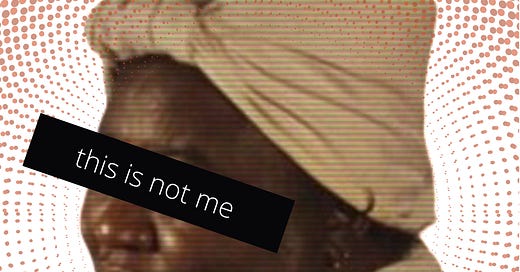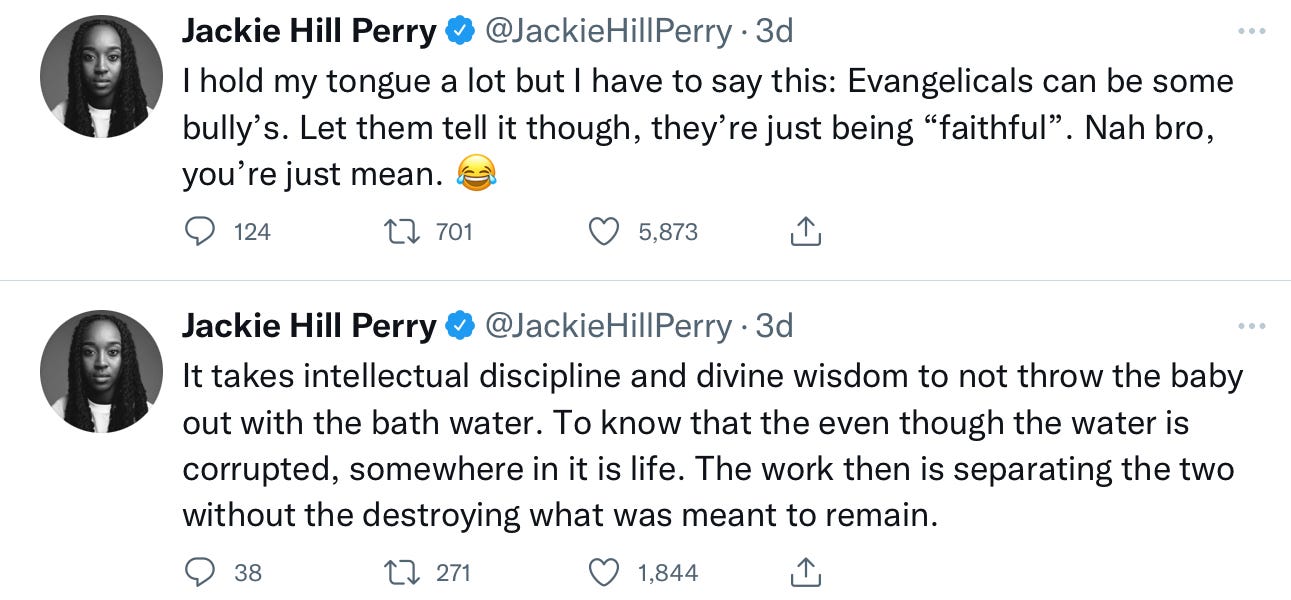I decided to pursue content creation in 2020 for three very specific reasons: (1) I’m smart, (2) I was tired of being ignored and dismissed, and (3) I am to be a NYT bestselling writer. (It’s forever on my vision board!) Thus, I took to instagram to add my voice into the endless and unforgetting chasm that is the internet. A few months later, I joined twitter. In 2021, started podcasting and eventually began TikTok-ing. It’s taken two years, lessons on how to boost your algorithm, and countless conversations with my mentor about “showing up authentically” to amass a following of 12K folks across all platforms. I struggle to name this as a celebration because of the shame that comes with the “numbers shouldn’t matter” crew. While I, too, agree that numbers shouldn’t matter they most definitely mattered for me because “she doesn’t have a big enough platform” was one of the consistent reasons publishers rejected my book proposal.
The world of internet marketing is both exciting and exhausting. Authentically showing up as your true self in a space that is heavy with expectation can stir a lot of insecurity or violence. Sometimes both. I once watched a video by a successful queer Black influencer saying “I gave up my 9 to 5 to become an influencer and now I work 24/7.” Let me mention that there’s a difference between influencer and content creator: an influencer aims to sell a specific product (think of it as commercials) whereas a content creator shares original knowledge and focuses more on personal brand building. I don’t aim to be an influencer; I aim to write books that can heal and liberate our wounded souls. I am a content creator (although, I prefer the term “public educator” because I am education-focused… and I have to justify getting my MA.Ed, LOL). I love this work and am also exhausted by it. The great challenge in content creation is making the conscious effort to humanize myself to wholeness rather than losing myself in the process of “promoting my brand.” Human beings become brands and, if we’re not careful to have the right community around us, we objectify ourselves for likes, comments, and shares.
I think these stakes are higher for Black women content creators. The ways and histories that have objectified us to be servants, healers, and sexual beings leads to oppressive expectations in the online realm. When I decided to pursue content creation I chose to specifically center and uplift the voices and experiences of Black, Indigenous, and People of Color who identify as women or gender expansive. I held a boundary and made it clear that my writing won’t appeal to or center a white audience. I’m thankful for establishing that early on and being clear with my objective — but my heart hurts for the sisters who didn’t take those steps because, all too often, they’re caught in the proverbial flames of white hatred or barely able to tread the waters of white women’s tears.
Despite my solid boundaries and unwillingness to engage in arguments with foolishness there are bigots who seep through the cracks and expose themselves every now and then. They saunter into conversations assuming themselves to be the paragon of morality. With immediacy they’ll begin shaming marginalized people in order to make us conform into their standards. Usually, these hhhhwyte people (and the BIPOC folks who are adjacent to whiteness) decorated their social media profile pages with statements like “racial reconciliation,” “social justice” “I listen to Black women” or “blm.” What I’ve learned from countless hurtful experiences is how those statements (meant to “set them apart” and make them our “allies”) are nothing more than thinly veiled classified ads for respectability politics. When I see those profile monikers my mind automatically translates it to “white progressive seeking house nigger for my social media plantation.”
As I’ve said before, the internet is a violent place. It is made more violent for Black women who seeking to celebrate their wholeness despite the violent white gaze.
Don’t believe me? See Jackie Hill Perry’s twitter account. The tweets don’t lie. And the internet is an unforgetting place.
But what about the Black women who celebrate their Blackness and are accepted by white women? I’m currently watching two cautionary tales happen on this in realtime: the Nap Ministry (twitter) and Aunt Karen (TikTok). I am going to stay on these examples for the remainder of this piece. What’s happening with their accounts are two very different examples of how Black women are working within or around the Mammy stereotype. I believe these dialogues are important pieces in the discussion surrounding being both authentically Black and unapologetically female in the realm of content creation.
Before we begin, let’s talk about Mammy. I’m using this excerpt from Dr. Stephanie Buckhanon Crowder’s book When Momma Speaks to guide our definition of Mammy:
…mammy became a type of mother figure in a context where the responsibilities of mother were inconsequential. Yes, biologically enslaved women carried the label of “mother”; however, the familial duties were secondary to their duties as producers of field hands. She had no time to love her daughters or sons, and she did not need to be loved. […] They were “the help” who spent their days tending to the needs of others, sometimes incessantly at the expense of their own maternal duties. […] They are caregivers who show little if no interest in their appearance. The principal concern is ensuring the needs of those who “lord it over them” are met. (Pg.7-9)
In this misgynoir built country, the expectation is for Black women content creators to become Mammy. Many will deny it, but I’ve seen too much evidence to make me suspect any less of your intentions.
To say that becoming a Mammy is the temptation of Black women branding is an insufficient statement. No, it is not our temptation. I don’t believe it’s our choice. The temptation is for followers (and consumers) to treat us as such rather than recognizing our humanity and honoring our need for boundaries and rest.
Keep reading with a 7-day free trial
Subscribe to this. to keep reading this post and get 7 days of free access to the full post archives.





